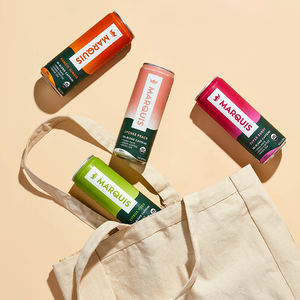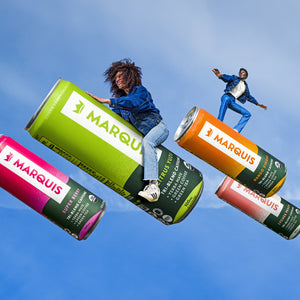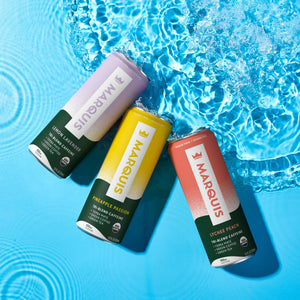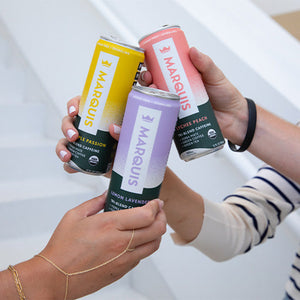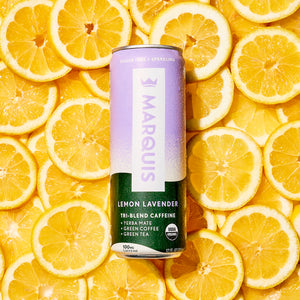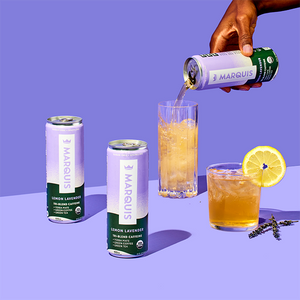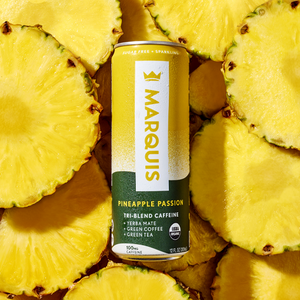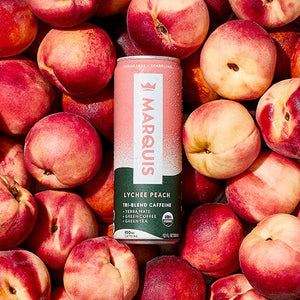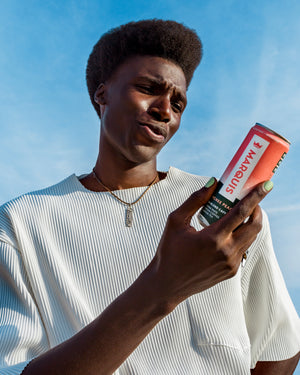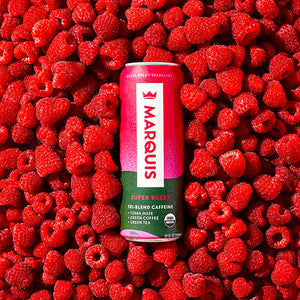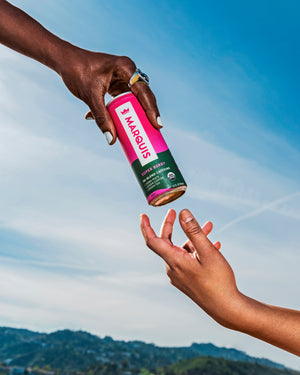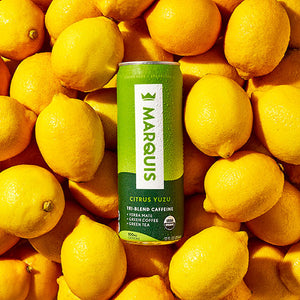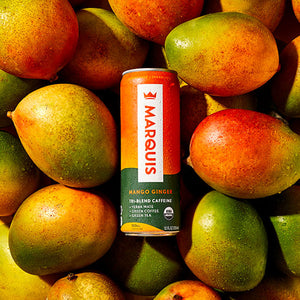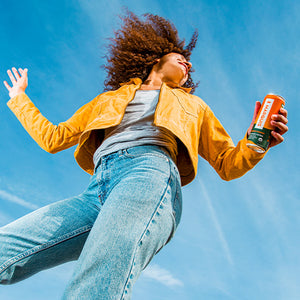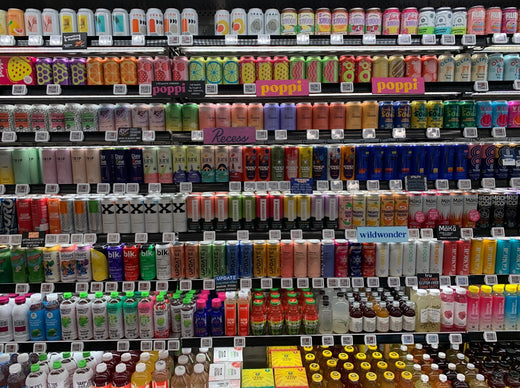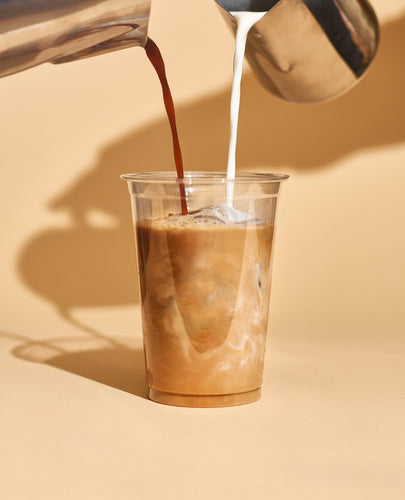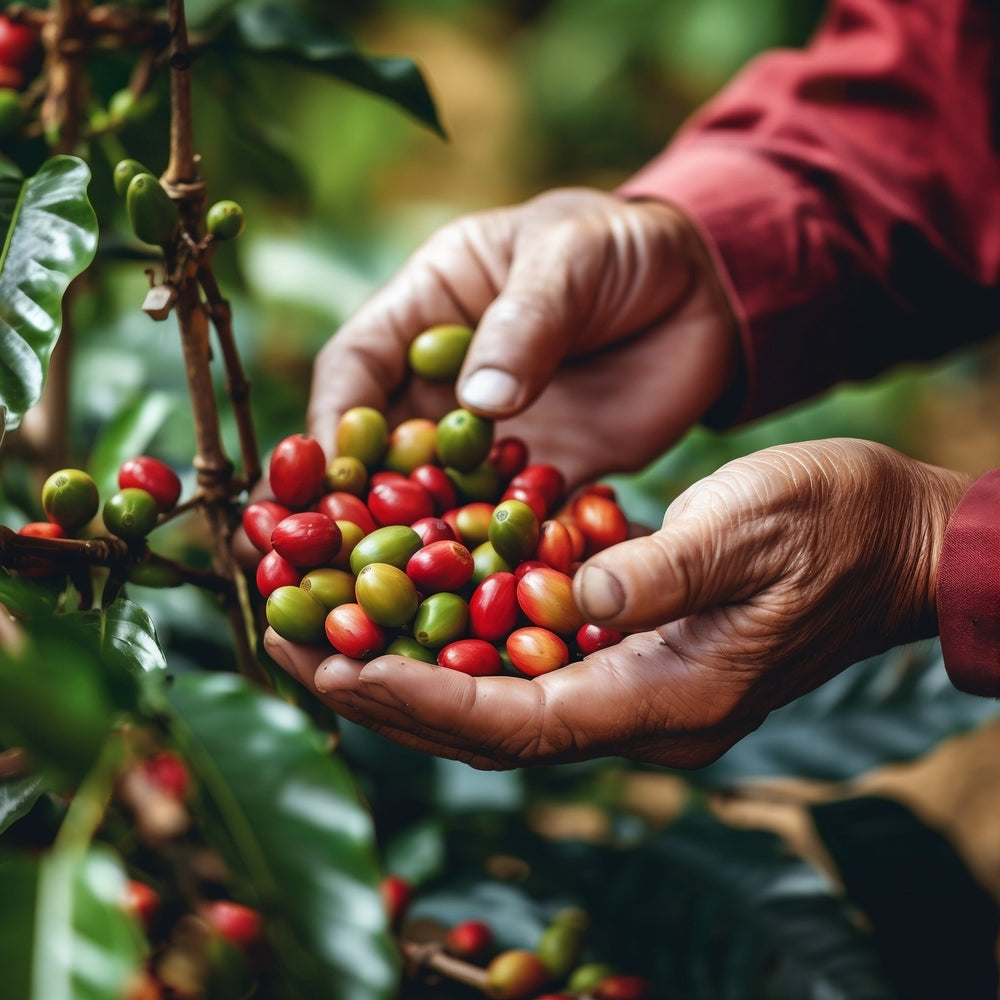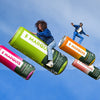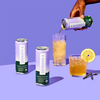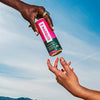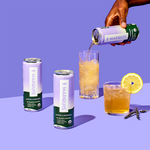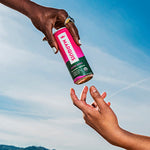
How much is too much caffeine? As a country that drinks 400 million cups of coffee a day, isn’t that the million-dollar question?
There’s no denying that millions of people across rely on caffeine to keep them going throughout the day. However, how many folks know how much caffeine is in their beloved cup of coffee? How about a pre-workout energy drink? An evening rum and coke?
When you reach for your next caffeine fix, there is a chance you’re getting your entire daily allotment in a single serving. However, most of us wouldn’t even know it.
So, how much is too much caffeine? And how much of that caffeine comes from our go-to drinks? Are we overindulging our caffeine intake? And if so, what’s that doing to our bodies? How do we cut back?
If you’re asking yourself those types of questions, then you’ve come to the right place. We don’t mean to brag, but our caffeine experts here at Marquis happen to know a thing or two about the topic, and today’s post is going to let you in on everything we know.
What Does Caffeine Do to Your Body?
Hands up if caffeine is your reason for getting out of bed in the morning. How about your 2 pm pick-me-up? Maybe it’s your pre-workout ritual? A guilty pleasure?
If any of these apply to you, then you might be wondering how exactly caffeine affects your body. For something that is consumed so regularly — 400 million cups, remember? — not many folks can tell you what caffeine actually does.
Of course, that all ends now.
We’re here to tell you that caffeine is a stimulant that increases both your brain activity and central nervous system. It functions a bit like a drug (yes, a drug!) that causes your adrenal glands to secrete adrenaline and release dopamine.
Our bodies easily absorb caffeine, which is why caffeine addiction is a real thing. Short-term caffeine effects — increased breathing, heart rate, mental alertness, energy, etc. — usually appear within 5-30 minutes of consumption.
However, consuming too much caffeine isn’t all that great, and it can lead to uncomfortable side effects like:
- Elevated body temperature
- Frequent urination
- Dehydration
- Anxiety and/or irritability
- Rapid heartbeat (palpitations)
- Caffeine headache
- Sleeplessness
- Dizziness and/or headaches
- Trembling hands
- The dreaded caffeine crash
So, if you’re looking to stick to a healthy dose of caffeine — and want to know the best ways to get it — keep reading. We’ve got your complete guide to enjoying clean caffeine in the morning, afternoon, and nighttime, all without overindulging.
Sound good to you? Because we’re ready to spill.

Are You Drinking Too Much Caffeine?
So, how much caffeine are you consuming each day? How many of you know the caffeine content of your beloved *inserts your favorite caffeinated indulgence here*?
Everybody reacts differently to caffeine, depending on body mass, health, and metabolism, and people who regularly consume caffeine can handle its effects better than those who do not. However, how much caffeine should the average person drink a day?
(Spoiler alert: you’re about to find out.)
Research shows that a maximum of 400milligrams of caffeine per day is a healthy amount for most adults. So, are you sticking to that daily limit?
A single cup of brewed coffee has about 95mg of caffeine, which means 400mg per day equates to about four cups. However, not all caffeinated drinks are created equal…
If you’re a die-hard latte-er, you should know that a 16oz Starbucks latte contains 150mg of caffeine, and certain energy drinks contain double that amount. Additionally, the caffeine that comes in powder or liquid form can provide toxic levels of caffeine — equivalent to about 28 cups of coffee — according to the Food and Drug Administration (FDA).
So, how much caffeine are you really drinking?
Five Ways to Cut Back on Caffeine
If you’re like most adults, caffeine is a part of your daily routine. And as long as you’re sticking to the 400mg limit, it shouldn’t become a problem. However, when you aren’t sure how much caffeine is in your go-to beverages, it becomes incredibly easy to overindulge. (Trust us…We’ve been there.)
If you start experiencing any of those caffeine side effects, you might want to re-think your caffeine consumption. Lucky for you, our team has some super simple ways of managing it:

1. Start Small
A caffeine detox — or caffeine reduction, per se — can be tough to undergo. For that reason, we recommend starting small and going slow (literally). This can look as simple as shrinking your serving size, or you can opt for a lesser-caffeinated version of your favorite drink.
For example, if you’re someone who has grown accustomed to filling their travel mug and taking their cup o’ joe with them on the go, you can easily reduce your caffeine intake by getting your coffee in beforehand. Travel mugs typically hold 14oz to 30oz, which is at least double (almost quadruple!) the size of a regular coffee mug. Drinking your coffee at home — from a regular-sized mug, might we add — will help you drink less.
Additionally, if you’re a Celsius fan — which is an energy drink containing 200mg of caffeine per can — you could swap it for an energy drink with less caffeine. A can of Marquis, for example, only contains 100mg of caffeine. Not only does this help you drink less caffeine, but it gives you the freedom to spread your caffeine intake throughout the day.

2. Hydrate More
Another easy way to reduce the amount of caffeine you’re drinking is to combine your caffeine intake with regular hydration. While caffeine doesn’t necessarily increase your risk of hydration, it does replace your daily water intake.
Drinking water in the morning keeps you hydrated, promotes satiation, energizes you, and supports brain function. Additionally, getting enough water helps prevent that dreaded caffeine crash and fights caffeine withdrawal symptoms.

3. Snack Often
Eating is our bodies’ natural way of energizing, and we mustn’t forget that! Combining your caffeine intake with high-protein snacks like multigrain toast, nut butter, and sliced fruit is a great way to boost energy. Additionally, a well-balanced meal regulates your blood pressure, which can help moderate the symptoms of a caffeine crash.
4. Drink Smarter
The last way to manage your caffeine intake is surprisingly simple: Drink the right kind of caffeine. Not all caffeine is created equal, so it is important to drink the best type for your body.
As we mentioned, most energy drinks contain a double-serving of caffeine and are loaded with sugar. While this combination initially boosts your adrenaline, insulin, and dopamine levels, they are fleeting, and you are bound to crash as soon as your hormone levels neutralize.
Drinking a lot of caffeine at once eliminates your ability to drink more later in the day. Therefore, an essential part of managing your caffeine intake is drinking it in smaller doses. Pairing caffeine with vitamins and minerals will also balance your blood sugar and keep you feeling alert.

5. Best Drinks for Cutting Back on Caffeine
Can you imagine a life where you don’t have to keep going back for a second (or let’s be honest, fourth) caffeine serving to stay on your toes? Trust us, it’s possible. If you’re struggling with caffeine-related side effects or are falling victim to caffeine crashes, then it’s time to rethink how you consume caffeine.
At Marquis, we pack a healthy 100mg of clean caffeine into every can. Our unique tri-blend of plant-based caffeine pairs yerba mate leaves, green coffee beans, and green tea to give you that balanced lift sans caffeine crash. Additionally, because each can contains just a quarter of your daily caffeine intake, you have the freedom to enjoy it multiple times a day.
If you’re ready to get started, order a box today. And if you’re feeling extra venturesome, join our no strings, no commitment subscription service today.
Welcome to the clean caffeine club, kid. We’re psyched to have you.
Sources
https://drinkmarquis.com/pages/subscribe
https://drinkmarquis.com/blogs/marquis-world/how-to-get-caffeine-without-the-crash
https://www.betterhealth.vic.gov.au/health/healthyliving/caffeine
https://www.huffpost.com/entry/americas-coffee-obsession_n_987885
